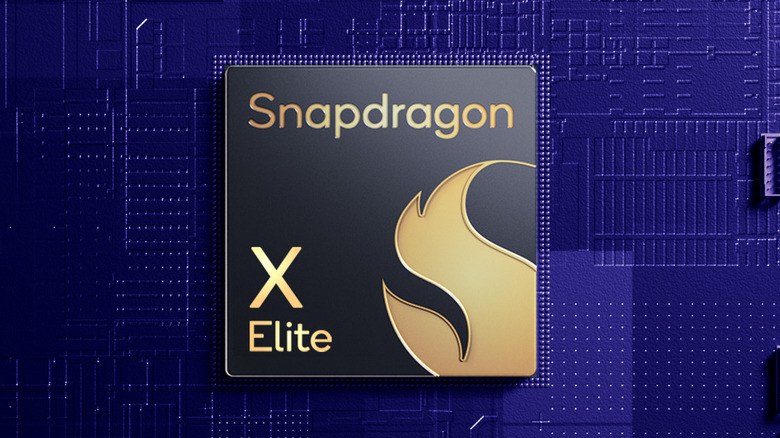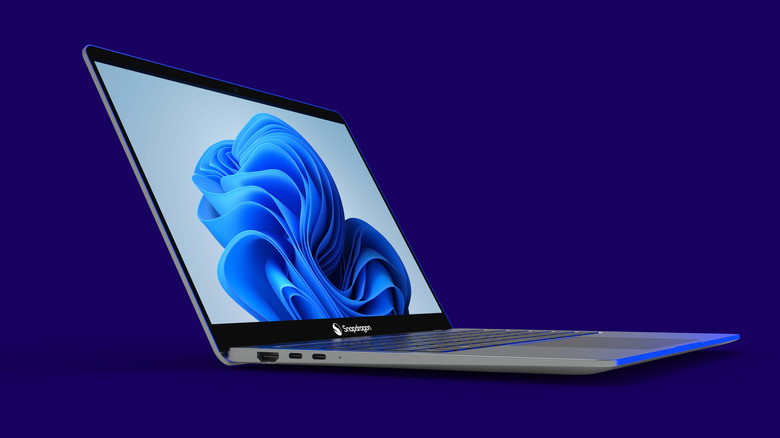Snapdragon 8 Gen 3 And X Elite SoCs Look To Give Generative AI A Huge Boost
On Tuesday at their Snapdragon Summit 2023 event, Qualcomm announced a pair of new system-on-a-chip (or SoC for short) products, targeting both their usual mobile space and laptop computers. Newly unveiled were the Snapdragon 8 Gen 3, the new mobile SoC that, per a Qualcomm press release, "further scales on-device AI," and the Snapdragon X Elite, which the company describes as "a PC platform which outpaces competing laptop CPUs and sets a new bar in AI performance."
The on-device AI capabilities were a major focus of the announcement. New features announced include a revamped Snapdragon Sound platform that uses these new AI capabilities for "advanced noise cancellation," as well as Snapdragon Seamless, "which lets devices work seamlessly together across manufacturers and OSes," per the press release.
"We are entering the era of AI, and on-device generative AI will play a critical role in delivering powerful, fast, personal, efficient, secure, and highly optimized experiences," said Qualcomm CEO Cristiano Amon in the press release. "Snapdragon is uniquely positioned to help shape and capitalize on the on-device AI opportunity, and you will see generative AI going virtually everywhere that Snapdragon goes."
Qualcomm claims that these new AI capabilities allow for some significant steps forward in the accessibility of existing AI applications. Per the press release, the new SoCs allow for on-device chat assistants on Windows 11 notebooks that can process 30 tokens per second in addition to being able to generate an AI-created image in less than one second using Stable Diffusion.
Qualcomm touts speed of new AI capabilities
"Our years of AI development, including the most powerful combination of CPU, NPU and GPU available in devices, and our support of all leading models running natively, means we can bring the benefits of generative AI to users worldwide and across multiple device categories," Amon continued in the press release. "The partner support we have at Snapdragon Summit is a testament to our standing in the industry as an on-device AI leader."
Elsewhere in its press kit, Qualcomm argued various benefits of moving AI apps to run on-device, with the biggest focus being given to privacy and security and how that also allows for potentially more personalized AI features. Other reasons given included energy use, immediacy ("Who wants to wait for a generative AI app to do its job?"), and cost. Qualcomm says that the new chips support "a wide range of" existing generative AI models, with those listed including "multiple models" from Microsoft, Meta's Llama 2, stability.ai's ControlNet as well as the aforementioned Stable Diffusion, Zhipu AI's ChatGLM2, and OpenAI's Whisper.
Qualcomm heavily pushed AI noise cancellation
In a separate release in its press kit, Qualcomm expanded on the capabilities of the new versions of its Snapdragon Sound platform, S7 and S7 Pro, which it says will "utilize an unparalleled level of on-device AI to deliver our most advanced, personalized, and responsive audio experiences." The S7 Pro, in particular, includes what Qualcomm is calling "micro-power Wi-Fi" for various wireless audio applications that extend beyond what Bluetooth is currently capable of, including support for lossless, high-resolution music with sample rates up to 192 kHz.
In a press kit document outlining the features of the new sound platforms in detail, Qualcomm further explains how AI will assist in transforming Snapdragon-based phones' active noise cancellation and volume amplification features to become more personalized. "The ANC also automatically and dynamically adapts to provide strong ANC performance based on different variables including variations in fit, whether the earbud becomes loose in the ear as you move, or whether the noise suddenly changes in your environment," it reads. "Transparency mode is supported for situations where you need to let sounds from the outside world in, and the ANC will automatically and seamlessly transition between modes."
Qualcomm also touts the S7 series platforms as being capable of "hearing loss compensation" but did not get into the weeds about that feature in its press kit.


